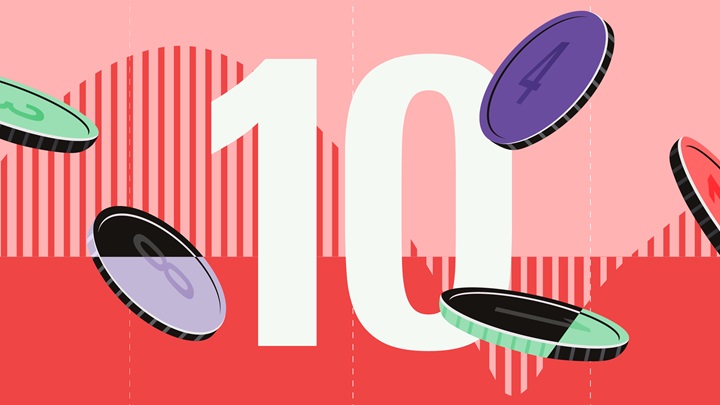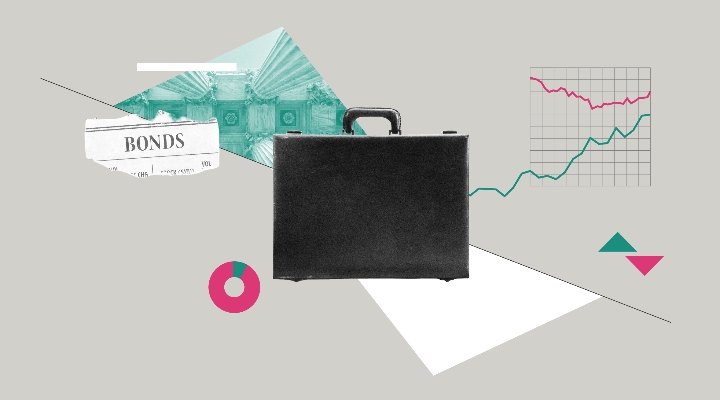.jpg)
UBS [UBSG] has agreed to buy rival Credit Suisse [CSGN] for 3 billion Swiss Francs ($3.2 billion) as Swiss authorities sought to restore confidence in the financial system. This slashed the value of Credit Suisse's shares, but it’s really owners of the bank’s low-ranking bonds who are left holding the bag.
Under the terms of the transaction, Credit Suisse shareholders will receive one UBS share for every 22.48 shares of common stock. Based on Friday’s closing prices, the transaction values Credit Suisse shares at CHF0.76, which is 59% below its last closing price of CHF1.86.
The last-minute rescue failed to calm nerves early Monday, and bank stocks were under massive pressure throughout the morning. UBS shed 12% in early trading, leading declines among its remaining peers in the region. Nerves calmed down in the course of the trading day, and the broader European market and U.S. stock futures even moved into positive territory.
"A dent to market confidence"
"Credit Suisse and UBS have entered into a merger agreement on Sunday following the intervention of the Swiss Federal Department of Finance, the Swiss National Bank and the Swiss Financial Market Supervisory Authority. UBS will be the surviving entity upon closing of the merger transaction," Credit Suisse said in a press release.
The bank's chairman Axel Lehmann called the merger "the best available outcome", while UBS Chairman Colm Kelleher called it an "emergency rescue." In a separate statement, UBS announced its intention "to acquire Credit Suisse," opting not to share CS's use of the term "merger". Combining the two banks will create an asset management giant with more than $5 trillion in assets under management, including more than $3.4 trillion in wealth management. The corporate and investment banking activities, a long-term source of trouble for the Swiss bank, seem destined to disappear or to be heavily restructured.
“The UBS takeover in principle is good news, an expedited outcome, rather than wait and watch to see if Credit Suisse could actually manage the necessary restructuring. The problem for investors generally, however, is that a takeover like this really does hark back to 2008 and forced takeovers of Merrill Lynch etc. Also, the speed at which Credit Suisse went downhill is worrying, and ultimately a real dent to market confidence generally,” commented Michael Field, European Market Strategist with Morningstar.
Seniority is thrown to the wind
In a surprise move, the Swiss regulator ordered “a complete write-down” of the value of Credit Suisse’s CHF16 billion in additional tier one (AT1) bonds, which are also known as contingent convertible bonds (CoCos). This means that holders of these bonds will be left with nothing. Stock owners, who normally have lower priority than bond owners in a bankruptcy process, will still receive about 40% of the most recent share price under the deal.
AT1 bonds are the lowest rung of bank debt. They are risky instruments that yield high returns when things run smoothly, but they are also designed to first feel the pain when a bank gets into trouble.
Their wipeout was perceived as a blow for European debt markets.
"What Finma has done breaking capital structure will have a long-term consequence for any Swiss financial debt," one Credit Suisse AT1 holder is cited in the Financial Times. One banker told the paper that the decision could lead to a "nightmare" in European debt markets, given that bondholders had heavier losses forced on them than shareholders.
Shortly after the deal was announced, the central banks of the Euro-area, Switzerland, the United Kingdom, Japan, Canada and the United States announced that they would increase the frequency of dollar swap transactions from weekly to daily. This is to ensure the supply of liquidity to banks.
A terrible week
The crisis-ridden Swiss bank had come under intense pressure last week, triggered by the collapse of three US regional banks - Silicon Valley Bank, Signature Bank and Silvergate Bank. On Tuesday, Credit Suisse was able to publish its annual report with a delay, where it became clear that it continued to see liquidity outflows, following CHF123.2 billion in outflows in 2022. According media reports, Credit Suisse was losing deposits at a CHF10 billion per day run rate.
The bank’s terminal nosedive was triggered on Wednesday, when its main shareholder, the Saudi National Bank, said it would not provide further financial support. CS stocks tumbled by more than 30% and fell below CHF2 for the first time.
Later that day, the Swiss National Bank (SNB) offered to provide liquidity to the group, if needed. CS accepted the offer just a few hours later, borrowing CHF50 billion. The intervention failed to stop the bleeding, and CS shares ended the week down 25%.
On Friday evening, the Financial Times reported that UBS was in negotiations about a full or partial takeover of its competitor. It became clear over the weekend that regulators and politicians thought the situation of Switzerland's second-largest bank was no longer tenable. The deal was made public late on Sunday.
UBS could benefit from takeover
According to Morningstar banking analyst Johann Scholtz, UBS will benefit from the takeover in the long run. “UBS is in a much better position to execute a radical restructuring of Credit Suisse's business than Credit Suisse was,” he said. “We calculate that UBS’s 2027 cost savings target would reduce Credit Suisse's 2022 adjusted operating expenses by around 60%. The restructuring will come with material costs, but UBS is better placed than Credit Suisse to absorb this. The challenge for UBS will be to keep revenue attrition to a minimum during the restructuring period.”
Ahead of the US market open, UBS shares turned positive in Swiss trading, rising 3% from their Friday closing price.






























